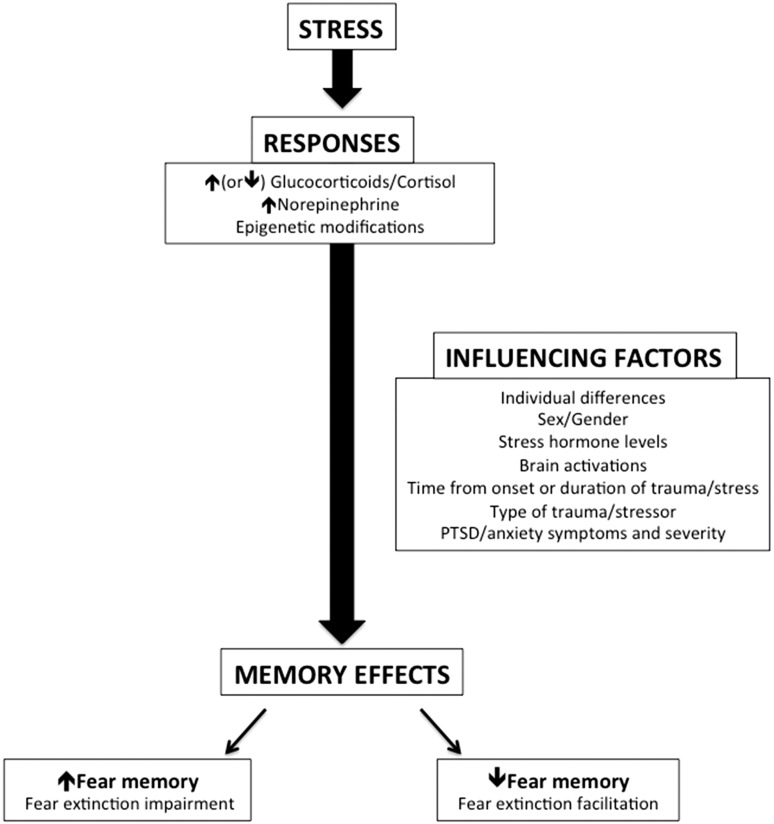Figure 2.
The effects of stress and influencing factors on fear memory. Stress exposure (acute or chronic) induces stress responses that include changes in cortisol, norepinephrine, and epigenetic mechanisms. These responses to stress can affect fear memory by either increasing or decreasing it during retrieval, and the direction of the effect is dependent on various influencing factors such as individual differences (accounting for personal experiences, coping styles, etc.), sex (or gonadal hormones), stress hormone levels at the time of the stressor/learning/memory recall, brain responses to the stressor, type of stressor, and the presence of PTSD/anxiety symptoms and severity. Disrupting retrieval of the fear memory may enhance extinction processes, suggesting that stress (or stress hormone) administration may improve response to extinction-based treatments such as prolonged exposure therapy.

